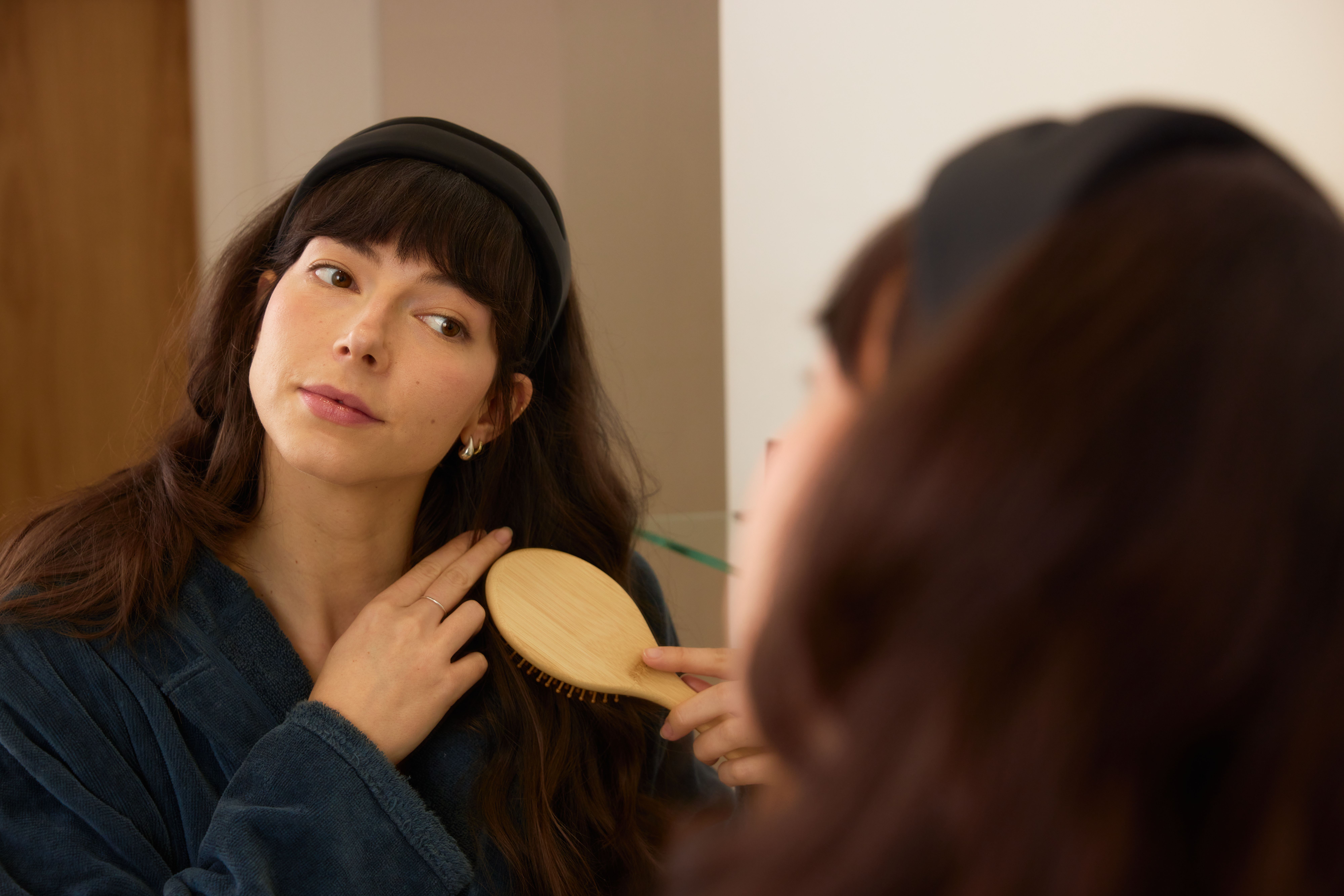
Neuroscience
•
2025-09-15
Closing the Gender Health Gap with Nettle™
We’ve all had those days where pain takes over, where you push through meetings or classes only to collapse later, or where a doctor waves away what you know isn’t “just in your head.” The gender health gap isn’t abstract - it’s hours lost to pain, paychecks docked for appointments you can’t make, and symptoms dismissed as “normal.” Menstrual health is where this shows up most clearly. Nettle™ offers a different path: at‑home, remotely supervised relief that respects your time, your body, and your experience.
The burden women carry
So much of women’s work happens in the margins - early mornings, late nights, in between everything else. Globally, women and girls spend more than 2.5 times as many hours on unpaid care as men. That “second shift” makes it harder to attend appointments, arrange childcare, and take time off when symptoms flare. Care that meets people where they are isn’t a nice‑to‑have - it’s the difference between getting help and going without. (UN Women)
Why at-home solutions matter
Think of the last time you had to take half a day off for a 15-minute appointment that was delayed, or paid more for travel or childcare than the visit itself. Healthcare access is about more than distance to a clinic - it’s about time, money, and dignity. Research shows telehealth visits save patients hours of travel and over $150 per appointment. For people balancing work, family, and their own health, that’s not a luxury - it’s survival. (JAMA Network, Oncology Nursing Society)
Tackling overlooked conditions
If you’ve ever had to pretend you’re “fine” while fighting cramps, brain fog, or mood swings, you’re not alone. Menstrual pain is one of the most common gynecological complaints - affecting around 70% of women. Yet treatment often stops at over-the-counter painkillers or hormonal contraceptives - options that don’t work or aren’t right for everyone.
Premenstrual Dysphoric Disorder (read more about it here) impacts millions worldwide, but many sufferers are told they’re “just emotional”. And endometriosis? Years of waiting, misdiagnosis, and dismissal are the norm, not the exception. (University of York, BMJ Open)
From neglected to prioritized
Imagine the relief of no longer losing days each month to pain, fatigue, or brain fog. Of finally being able to show up fully at work, school, or home without your body being a barrier. This isn’t just about individual health - it’s about systemic equity. The World Economic Forum recently estimated that closing the women’s health gap could unlock $1 trillion globally every year by 2040. That’s not just because women lose productivity to untreated conditions, but because health shapes participation in every sphere of life. (Nature)
Imagine what it means when millions of women no longer lose days each month to pain, fatigue, and brain fog. When care fits into their lives instead of being another obstacle. When menstrual health is treated as central, not peripheral.
How Nettle™ fits in
No one should have to prove their pain to deserve care. Relief shouldn’t be a privilege - it’s a basic dignity.
Nettle™ is the first hormone‑free, drug‑free, at‑home neurotechnology designed specifically for menstrual pain and mood swings. Built on years of research in transcranial direct current stimulation (tDCS), Nettle™ enables short, remotely supervised sessions you complete from home - no commutes, no scheduling battles, no pharmacy queues.
User feedback is encouraging: 80% of Nettle™ users report fewer sick days or interruptions, and users save about three appointments per month.
Nettle™ is a step toward equity because the gender health gap must be tackled from many sides - big policy shifts and budgets, but also daily wins: fewer hours lost, fewer days written off, and fewer times being told “it’s all in your head.”

